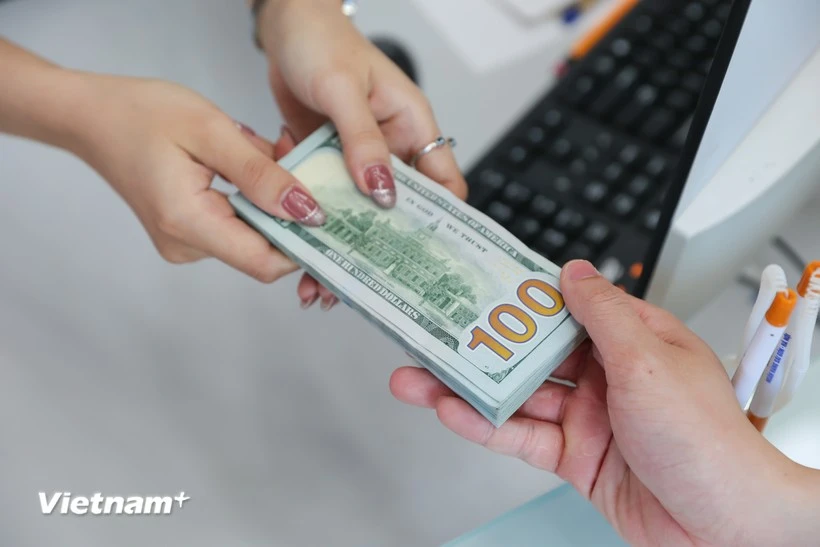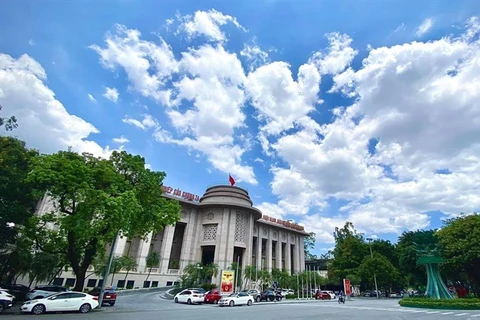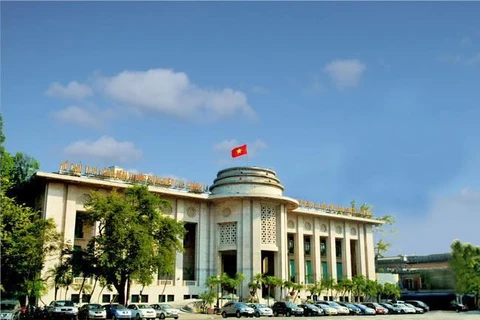
Hanoi (VNA) – The State Bank of Vietnam (VNA) will manage the exchange rate flexibly, adjusting in line with general trends while still ensuring macro-economic stability and foreign currency balance, said its Permanent Deputy Governor Dao Minh Tu.
At major private commercial banks, the US dollar price has continued to rise sharply, with some quoting the selling price at 25,221 VND/USD, surpassing the selling price of the US dollar at the SBV's Reserve Management Department and hitting the ceiling price allowed for trading on the April 3 session.

Answering reporters’ question about the "hot" exchange rate at the regular Government’s press conference on April 3 afternoon, Tu said the US Federal Reserve (Fed) has not specified a specific time for loosening its monetary policy by lowering interest rates. This delay has had the opposite effect, impacting global currencies, including the Vietnamese dong.
Furthermore, Vietnam's interest rates have dropped strongly recently, creating a gap between the US dollar and Vietnamese dong interest rates in the interbank market, putting upward pressure on the US dollar.
In the first quarter of this year, the country’s imports saw strong growth, leading to increased demand for foreign currency for imports more than in previous periods. Several other policies may affect exchange rate policies.
However, he said with the SBV’s management, the exchange rate remains stable, ensuring a smooth foreign exchange market and a positive foreign exchange situation for commercial banks and the economy, meeting the foreign currency needs of businesses, importers and the economy. The depreciation rate of the Vietnamese dong against the US dollar was still lower compared to other countries, with a year-to-date depreciation of only 2.6% compared to 2.9% in 2023.
To address the immediate pressures, the SBV has flexibly managed the exchange rate to absorb external shocks and simultaneously issued Vietnamese dong bonds to reduce excess VND liquidity, alleviating short-term pressure on the exchange rate.
Expressing his optimism for the medium term, Tu held that the Fed is likely to initiate its monetary loosening policy in the second half of the year, potentially leading to a weakening dollar on a global scale.

SBV Permanent Deputy Governor Dao Minh Tu answers reporters’ queries at the government’s regular press conference (Photo: VietnamPlus)
In the medium term, with the Fed expected to begin the process of loosening monetary policy in the second half of this year, the pressure on the international market may gradually decrease, and the US dollar may cool down along with the Fed's interest rate reduction trajectory, Tu said.
The SBV will continue to monitor market developments closely and flexibly manage the exchange rate, ensuring its alignment with other monetary policy tools. It stands ready to intervene in the market when necessary to stabilise the foreign exchange market, contributing to inflation control and macro-economic stability.
In fact, the foreign exchange reserves of the SBV remain stable and sufficient to intervene when necessary, Tu stressed./.






















